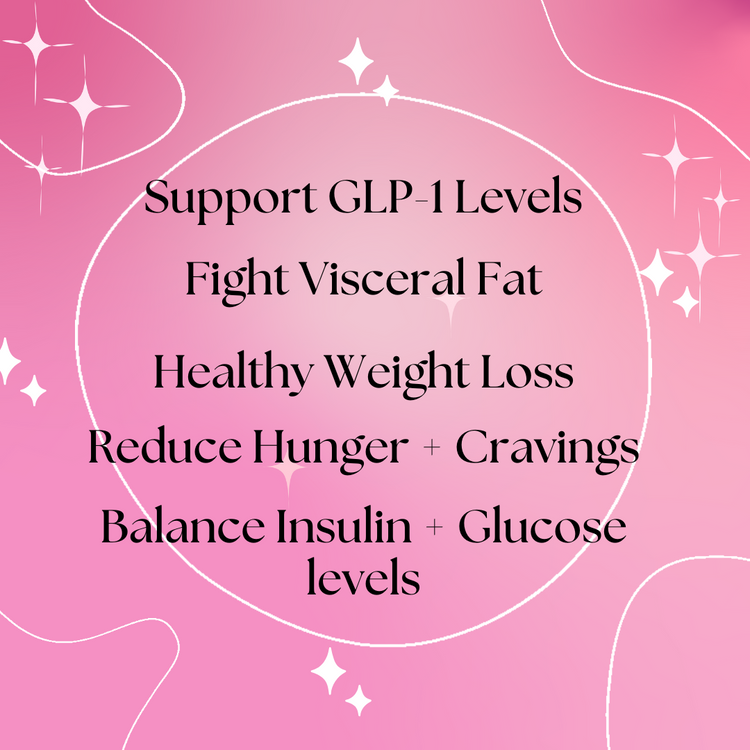As a mom of 4 boys, I think the first baby is the hardest baby. Adjusting to having a baby is a really hard process, but I've learned so much going from one baby, to the fourth baby. I've put together some of my favorite tips for first-time moms that will save a lot of stress and anxiety. The only issue I can't help much with is sleep. Pretty much every new mama, especially if you are breastfeeding, struggles with getting any kind of decent sleep. I know my sister was lucky, and her boys would sleep all through the night, but that definitely isn't the norm! If you have a baby that likes to feed through the night, don't worry, it is so normal!
Welcome to Motherhood: Emotions and Expectations
Embarking on the journey of becoming a new mom, I've realized it's a whirlwind of emotions - a blend of pure joy and unparalleled anxiety. As a first-time mom, you're stepping into a realm where every cry, giggle, and milestone is a learning experience. There's an inexplicable thrill in witnessing every 'first' of your little one, yet the fear of the unknown can be daunting. The transition into motherhood demands not just physical readiness, but a strong mental and emotional preparation. It's about embracing the change, accepting that not every day will be perfect, and knowing that it's okay to feel overwhelmed. The beauty of this journey lies in its complexity - for every challenge faced, there's an unmatched reward in the form of your baby's smile. The key is to find balance, seek support when needed, and trust in your innate ability to nurture and love.
Key Takeaways:
- Embrace the emotional rollercoaster: Accepting the blend of excitement and challenges is crucial.
- Prepare mentally and emotionally: Understanding that motherhood is more than just physical readiness.
- Trust in your ability to nurture: You're equipped with an innate capacity to care for your baby.
Navigating the First Days: From Hospital to Home
As a new mom, you might find the journey from the hospital to your home daunting. Here's some guidance to help you transition smoothly. The first thing is ensuring the car seat is properly installed. Many hospitals offer a check by a certified car seat technician; take advantage of this.
Carseat tips for Newborns:
There are a lot of car seat options for newborns. It can be really overwhelming to try and choose which one is best! Utlimately, choose one that you like the reviews on, and don't get too caught up in the most expensive car seat. I've found that they are great car seats, and usually the more expensive ones look nicer, but aren't necessarily safer. You can also get a 2nd hand car seat as long as it isn't expired and never been in an accident. This is a great way to save money, but still get the car seat you really want.
Hospital Stays and Wakeups (don't be afraid to request to go home!):
The nurses are going to wake you up a lot at the hospital! You will have many checks throughout the night, depending on what kind of delivery you had. Baby usually needs a few checks, and you will too, so don't plan on sleeping much after birth. With my later babies, I left the hospital after one day because I wanted to be home with my other children, and I really wanted to sleep better. I requested an early discharge if okay by my doctor. Getting home, getting more sleep, and getting back in my own environment really helped me and baby adjust faster.
Understanding Your Baby's Cries
Understanding your baby's cries can feel like learning an entirely new language, and frankly, it is. As a new mom, I soon realized cries are the first form of communication between us and our little ones. It's both a beautiful and bewildering journey, learning to decipher those wails and whimpers. Sometimes, there’s no clear reason behind the tears, no matter how much we wish there was a straightforward answer. This doesn’t mean we’re doing anything wrong, or that our baby is unhappy. It's simply part of their development, a way for them to express themselves before words come into play. Embracing patience and taking the time to understand my baby’s unique needs truly made a difference, reminding me that every cry, even the unexplained ones, is a step toward understanding my new baby a little better.
Be prepared to stand and walk a lot:
I have no idea why, but every one of my babies perferred for me to stand and walk and hold them. The minute I tried to sit down and hold them, they would fuss. I found that if I just got used to walking around and holding baby, life was less frustrating. I used wraps when they were really little, so I could have my hands free. Wraps are nice for little babies, then you can use the front packs as they grow. Even with the wraps on, I still had to walk around and stand to keep them asleep. If this works for your baby, don't fight it, just be prepared to keep moving.
When in doubt, breastfeed:
I learned early on to let go of a feeding schedule, and allow baby to breastfeed for comfort. It saved me a lot of unnecessary crying and fussing if I just breastfed a lot. It also kept my milk supply high because I had baby skin to skin so much. This is really helpful in the first few weeks when you are establishing your milk supply too. If you are too strict with a schedule, your milk supply can actually drop, and you will find that you are going against your body and baby's needs. It is a natural process for baby to nurse to fall asleep and for comfort becasue it signals to your body to keep producing a lot of milk, and it calms baby. I found that this method, despite having to walk up in the night, worked really well for all of my babies. I was able to keep my milk supply up and lose the baby weight at the same time because breastfeeding skin-to-skin was a huge priority. If you have to go back to work, just make this a priority until it gets closer to work time. Then you can transition baby to a bottle to help them get used to it, and use the pump to continue stimulating your body.
Focus on your nutrition:
Over the years, as I've helped so many mamas lose weight while breastfeeding, without losing their milk supply, one of the main issues I find is that many mothers just get exhausted and hungry, so they eat anything and everything to keep their milk supply up and their energy up. But, when you start relying on sugar and processed carbs to keep your energy up, you also end up wanting more calories because your body isn't getting the nutrients it needs to keep up with breastfeeding. Protein shakes were a life saver for me, and I wish I would have tried them more with my first baby. I used them a lot for the rest, and was able to use Milk Dust after my 4th, and Milk Dust made a HUGE difference!
Use lactation protein shakes to keep milk supply up:
Protein shakes are full of essential nutrients, you can drink them one-handed, and you can prepare them easily with one hand. I typically made my protein shakes with frozen strawberries, spinach and Milk Dust. It was delicious, super filling and it totally cut out my sugar cravings! Milk Dust is specifically formulated to stop sugar cravings and increase milk supply at the same time, and it worked really well for me. I had too much milk, while eating less and feeling really full.
Stop breastfeeding hunger with protein:
Protein is also extremely helpful to stop breastfeeding hunger. Anytime I skipped my protein shake, I was STARVING all day once 2pm hit. I twas like my body was craving the protein and nutrients, and I couldn't get enough food to satisfy those needs. That is because Milk Dust has a lot of b vitamins, folate, chromium, zinc, protein and other nutrients that are really important during postpartum and lactation. On the days I missed my protein and nutrient needs I was a completely different person. I wanted to eat all the sugar and carbs, and I just couldn't function the same. On the days I had my shake, I could go hours with lots of energy, and I didn't want to snack on everything possible. I promise whatever protein powder you use, and I have a post going over a lot of them, you will feel so much better making a daily protein shake!
Also read:
Pacifiers - A great tool when needed!
As a first-time mom, delving into the world of pacifiers felt like navigating a minefield. I had countless new mamas and seasoned family members weighing in, but what really caught my attention was the American Academy of Pediatrics' take on it. On the one hand, pacifiers can be incredibly soothing for babies. They satisfy the natural sucking reflex, which can help calm your newborn and even aid in sleep. The American Academy of Pediatrics also believes that pacifiers might play a role in preventing Sudden Infant Death Syndrome (SIDS), which provided me a sense of security in those early, anxious days.
However, it wasn't all smooth sailing. I learned that reliance on a pacifier could potentially lead to challenges with breastfeeding, as it may confuse some babies, making them less inclined to latch properly. There was also the looming threat of dental issues with prolonged use. Nevertheless, armed with all this information, I felt empowered to make the best choice for me and my baby. Ultimately, the decision to use a pacifier, like many aspects of parenting, involved weighing the pros and cons and understanding that the perfect balance varies for each family.
My babies would use a pacifier, but they spit it out and dropped them so much I got annoyed and just stopped trying to use them much. A pacifier does come in handy if you need to leave baby for any amount of time, and they prefer to breastfeed over a bottle. A pacifier is a great tool for anyone who is watching baby, and needs something to help them until mama comes back!
I found that babies who use pacifiers more are so happy! If it works for your baby, why not use it as a tool to keep them soothed? I personally have not seen extreme negatives from using a pacifier, and they can be a lifesaver when a baby is really difficult. Of course, if baby loves it, and you lose it, that is really hard, but overall, if it works for you and your baby, do it!
Skin-to-Skin: The Power of Touch
As a new mom, stepping into this role for the first time, I discovered the magic of skin-to-skin contact. The first time I held my newborn against my skin, it was like a piece of my heart settled into place. Skin contact isn't just a beautiful way to bond; it's a powerful tool for emotional development for both of us. In those early weeks, when sleep deprivation tested my limits, and I felt unsure of my new role, laying my baby on my chest was soothing. It calmed the storm inside me and, surprisingly, eased my baby's cries too. This simple, yet profound act of holding your baby close, feeling their heartbeat against yours, is one of the best things you can do. It reinforces that unspoken promise to give your new baby the best care, enveloping you both in a cocoon of love and security.
Breastfeeding Battles: Strategies for Success
As a new mom, I quickly learned that breastfeeding, while natural, isn't always as intuitive as I thought it would be. Like many first-time moms, the struggle was real, but along the way, I found some lifelines that genuinely helped. Seeking help from a lactation consultant was a game-changer for me and many other new mothers I spoke with. These professionals are like the fairy godmothers of breastfeeding, offering not just technical advice but emotional support as well. They helped me understand that every new baby and mom pair is unique, and what works for one may not work for another. So, to all the new mamas out there, remember, it's okay to ask for help, and it's okay if breastfeeding takes a bit to get the hang of. You're doing an incredible job providing the best care for your little one.
Co-Sleeping can lead to more sleep!
I found that my babies slept longer right next to me. It didn't matter what I did, if I put them next to me in a bouncer or crib next to my bed, it didn't work! They had to be sleeping on me, or I'd be up all night. Out of survival, I learned to cosleep with my first baby. Obviously it can be nerve-wracking if you are a super heavy sleeper, or you toss and turn a lot, and it isn't recommended. But, for me it worked. I am a light sleeper, and I don't toss and turn much at all. I was able to safely cosleep with all of my babies. This is something you have to decide for yourself and know there is risk involved, but it could really help your sleep situation.
The Truth About Sleep (or Lack Thereof)
As a first-time mom, I remember being enveloped in a haze of sleep deprivation that no amount of prenatal classes or helpful tips from my best friend could have prepared me for. Bringing home my newborn baby, I quickly realized that those first weeks were going to challenge every ounce of energy I had. You see, there's a myth that babies will settle into a perfect sleep schedule almost immediately, leaving you to catch up on your own rest. But let me tell you, this couldn't be further from the truth. Each baby, each family member, in fact, has their own way of adjusting to this exciting time, and sleep can be elusive for many.
The best advice I received came from a good friend and an experienced mom. She reminded me that it's okay if my baby isn't sleeping in long stretches like the newborns of some other new parents I knew. This was a game-changer. It allowed me to release the pressure of trying to be a perfect parent and understand that sleep deprivation is a common part of the first year of motherhood. It's tough, but it's a phase that, like everything else, eventually passes. And in those quiet moments of late-night feedings or early morning cuddles, I found a new depth of love and a unique bond forming between me and my baby.
The ABCs of Postpartum Mental Health
After we welcomed our little one into the world, I quickly realized that the rollercoaster of emotions I was experiencing was a common part of the postpartum journey. From overwhelming joy to intense bouts of sadness, the postpartum period was a tumultuous time for me. Many new moms, including myself, often hear about the baby blues, but what took me by surprise was how these feelings could sometimes deepen into postpartum depression. I learned that it's crucial not only to recognize these emotions but also to know when to seek help. The support I received from my partner, friends, and a postpartum support group was invaluable. They reminded me that it's okay not to feel okay and that reaching out for support is a sign of strength, not weakness. The key for me was understanding that postpartum emotions are a spectrum, and every new mom's experience is valid and important.
Asking for Help: Building Your Village
As a first-time mom, it's crucial you realize you're not alone on this thrilling yet daunting journey. Creating a support network of family members, best friends, and professionals is vital. As new parents, we often feel we should handle everything on our own, especially when it comes to care for a newborn. But asking for help is not only a good idea, it's necessary. Whether it's seeking advice from a lactation consultant, joining support groups, or simply allowing a good friend to help with diaper changes, every bit of support helps. Embrace this exciting time by letting others be part of your family's first year. Remember, being the best parent isn't about doing it all alone – it's about ensuring the best care for your baby, and sometimes, that means reaching out.
Trusting Your Instinct: You Know Best
I remember standing in my living room, overwhelmed and second-guessing every decision as a first-time mom. The pile of parenting books on my coffee table seemed to contradict each other, and every new baby hiccup sent me into a whirlwind of Google searches. It was during those moments of doubt that I had to remind myself to trust my instincts. You see, while it's easy to get caught up in the opinions of everyone from your mother-in-law to that well-meaning friend on social media, remember, you know your baby best. Sure, the advice from a lactation consultant or your pediatrician is invaluable, especially concerning health and safety. But when it comes to the everyday care of your newborn, allow yourself to lean into that innate connection you have with your little one. Whether it's deciding if a pacifier is necessary or deciphering the reason behind a cry, trust in your ability to care for and nurture your baby. Combine that trust with the support and expert advice when needed, and you'll find your unique way to thrive as a new mom.
A Joyful Journey Ahead
As a new mom myself, I've trudged through the trenches of sleep deprivation, felt the overwhelming surge of postpartum emotions, and faced the daunting task of making a birth plan that feels like a perfect fit. But here's what I've learned on this unpredictable journey: the first-time mom's path is filled with more joy than you can imagine. From the first skin contact to those late-night diaper changes, every moment is a chapter in an exciting time that deepens the bond with your new baby. Whether you're a single mom building your support network or a part of a duo navigating this new terrain, remember, there's no such thing as a perfect parent. Yet, the support of a good friend or a social media tribe can make all the difference. By leaning on expert advice, like that from the American Academy of Pediatrics, and maybe attending a few prenatal classes, you're doing the best thing for you and your family member. With every fresh air stroll or car seat giggle, you're forging a path of countless firsts. Trust me, embracing your own way, maintaining mental health awareness, and cherishing every little time with your newborn baby brings a unique joy that lasts a lifetime. Welcome to the first year of an incredibly rewarding, exciting time with your best friend—your baby.










